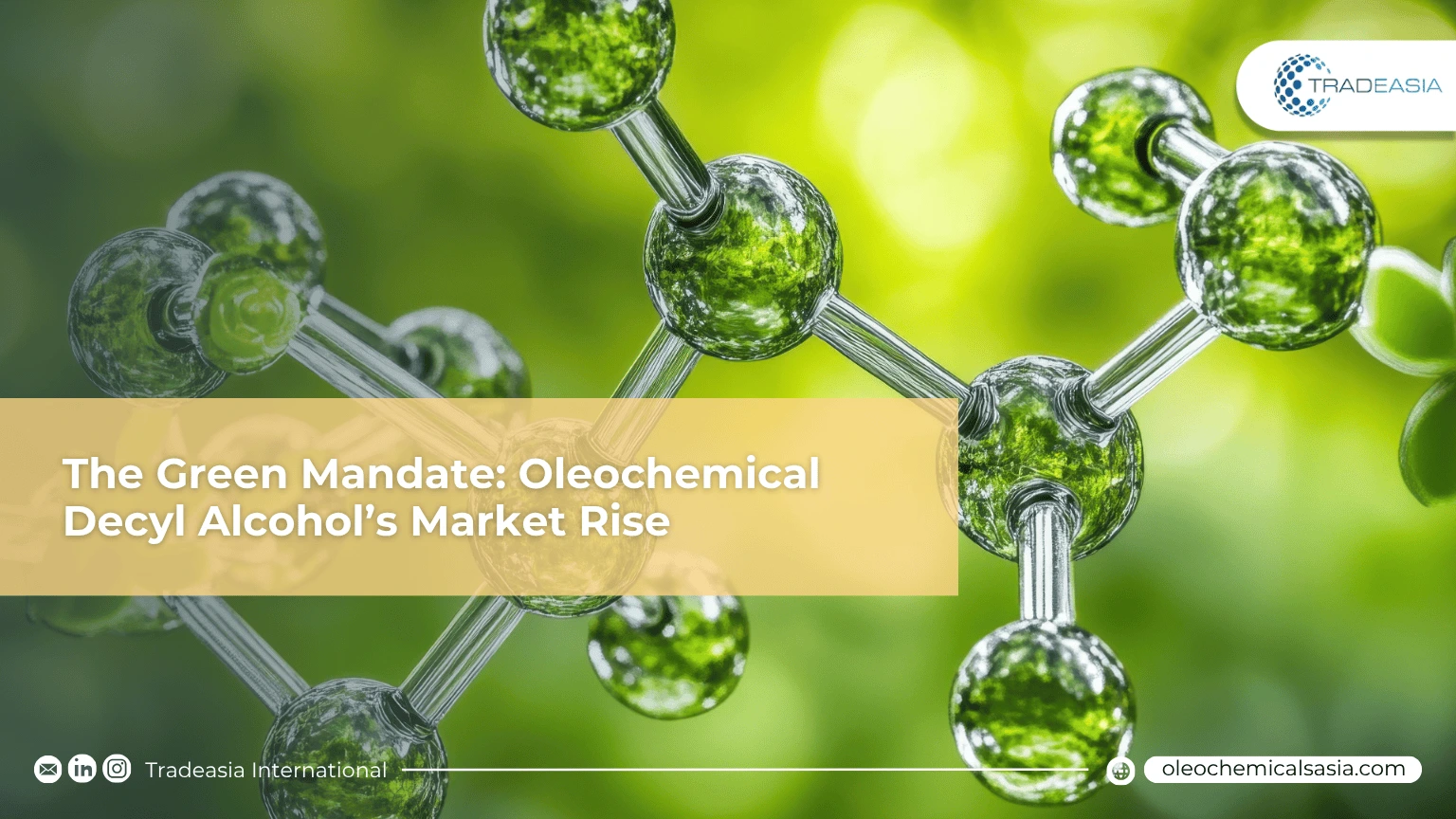The Green Mandate: Why Oleochemical-Based Decyl Alcohol is Poised for Majority Market Control (2020–2040)

Table of Content
- The Sustainability Premium: Regulations and Consumer Demand
- Mitigating Risk: Stability in the Palm-to-C10 Chain
The decade ahead is defined by sustainability, and in the specialty chemicals sector, this translates directly into a preference for natural, renewable feedstocks. The global market for Decyl Alcohol (1-Decanol) reflects this shift, with Oleochemical-Based (Natural) Decyl Alcohol firmly projected to solidify its majority status, exceeding 60% of the total market volume by 2040, up from an already dominant 59.6% share in 2024. This impressive lead isn't merely a trend—it is a business imperative dictated by regulatory and consumer forces that are fundamentally rewriting supply contracts. To capture this growing segment, businesses need reliable, high-purity Capric Acid (C10:0) derivatives, sourced primarily from Palm Kernel Oil (PKO). Firms like Tradeasia International, which are intrinsically linked to the supply chain from the kernel to the final purified fatty alcohol, offer a critical competitive advantage in securing this vital, renewable resource. They understand that continuity of supply requires mastering the complexity of palm processing.
The Sustainability Premium: Regulations and Consumer Demand
The competitive landscape for Decyl Alcohol is now defined by its source. Stringent environmental policies, particularly in the EU and North America, have heavily penalized carbon-intensive, petrochemical-based production. In parallel, global consumer demand for clean label and eco-certified ingredients has soared, with studies indicating that up to 70% of EU/US consumers actively seek sustainable products. Consequently, the Bio-based Decyl Alcohol segment is expected to outpace its synthetic counterpart by at least 0.5 percentage points in CAGR over the next ten years. Oleochemical producers leverage the natural occurrence of Capric Acid (C10:0), which constitutes approximately 3–5% of PKO, converting it into high-purity Decyl Alcohol through advanced fractionation and hydrogenation. This provides a supply chain narrative that synthetic producers simply cannot match.
Mitigating Risk: Stability in the Palm-to-C10 Chain
In an era of supply chain volatility, the stable and high-volume nature of the PKO feedstock offers a crucial risk hedge. Crude oil price fluctuations, a constant threat to synthetic producers, have led to unpredictable input costs. In contrast, the established PKO supply chain allows for more predictable long-term cost structures, essential for high-volume consumers in the detergent and plastics industries. This predictability ensures greater financial forecasting accuracy. The strategic shift to oleochemicals is a move to secure not only a sustainable product but also a more economically resilient one. Companies that fail to adapt their procurement to this 59.6% majority segment risk being priced out of the fastest-growing end markets and losing their social license to operate.
Sources:
-
Market.us - Decylalcohol (CAS 112-30-1) Market Size | CAGR of 4.9%
-
Precision Business Insights - 1-Decanol Market Size, Share Analysis 2031
-
Oleochemicals Derivatives by Tradeasia - Palm Kernel Oil Supply Chain Tag

Leave a Comment